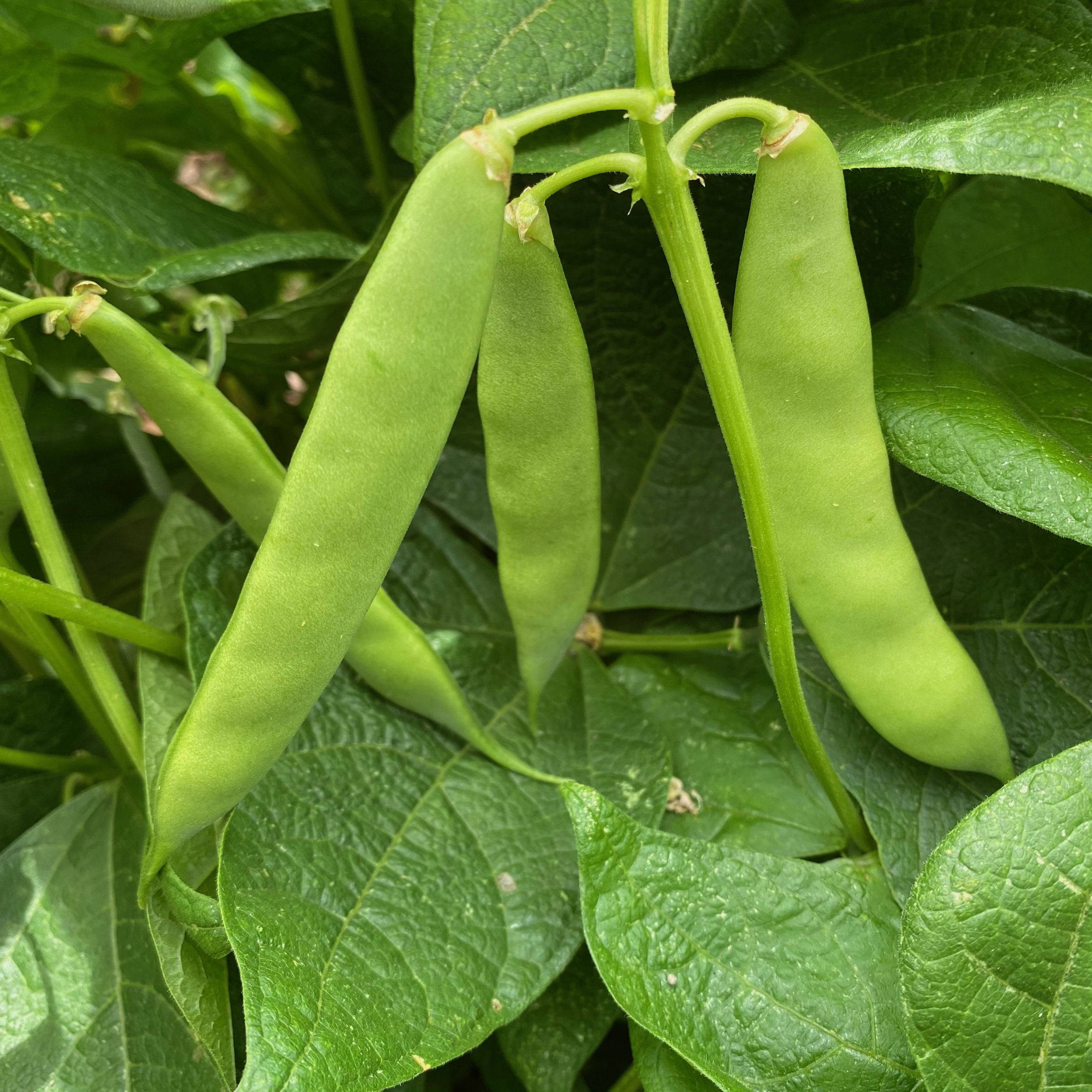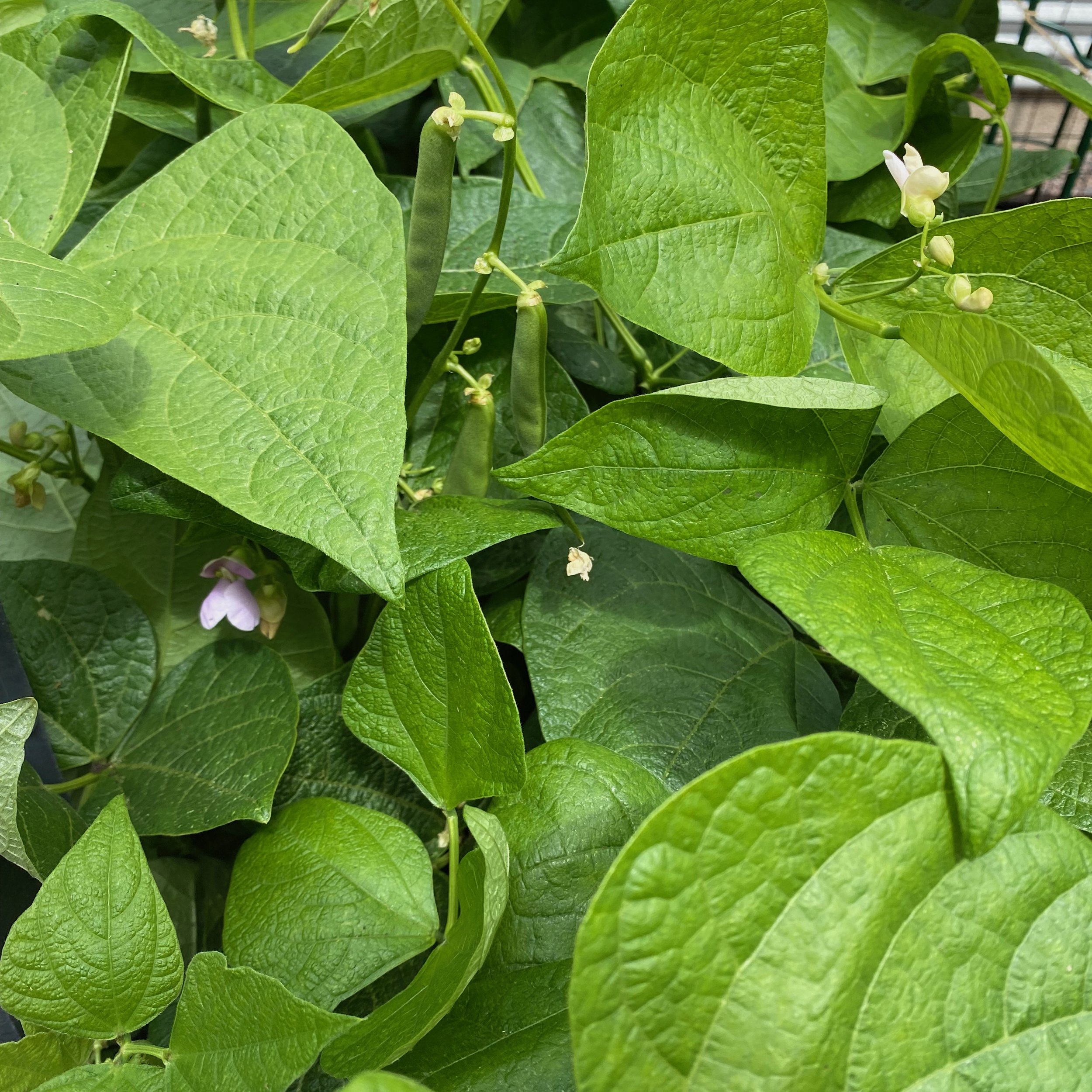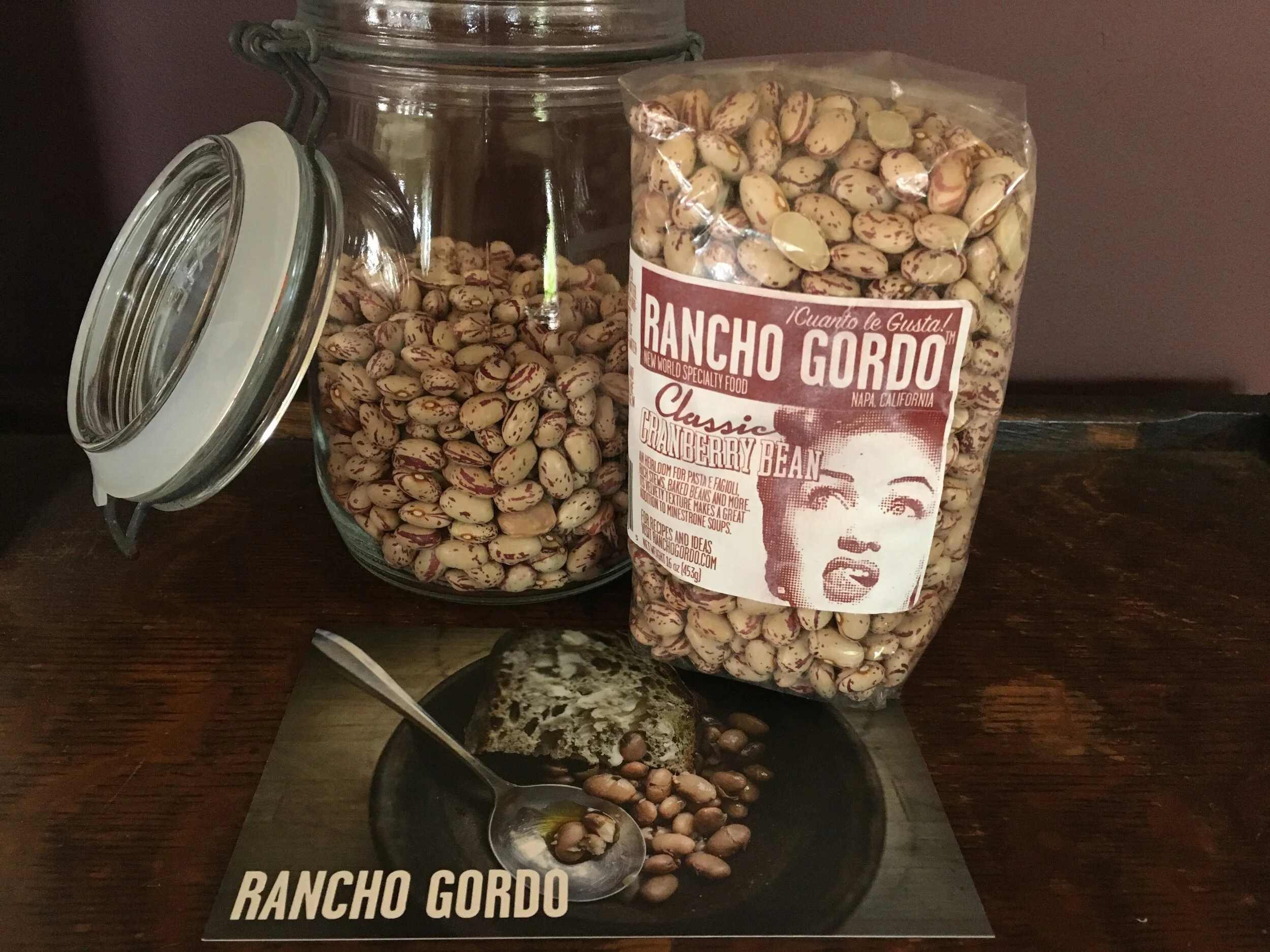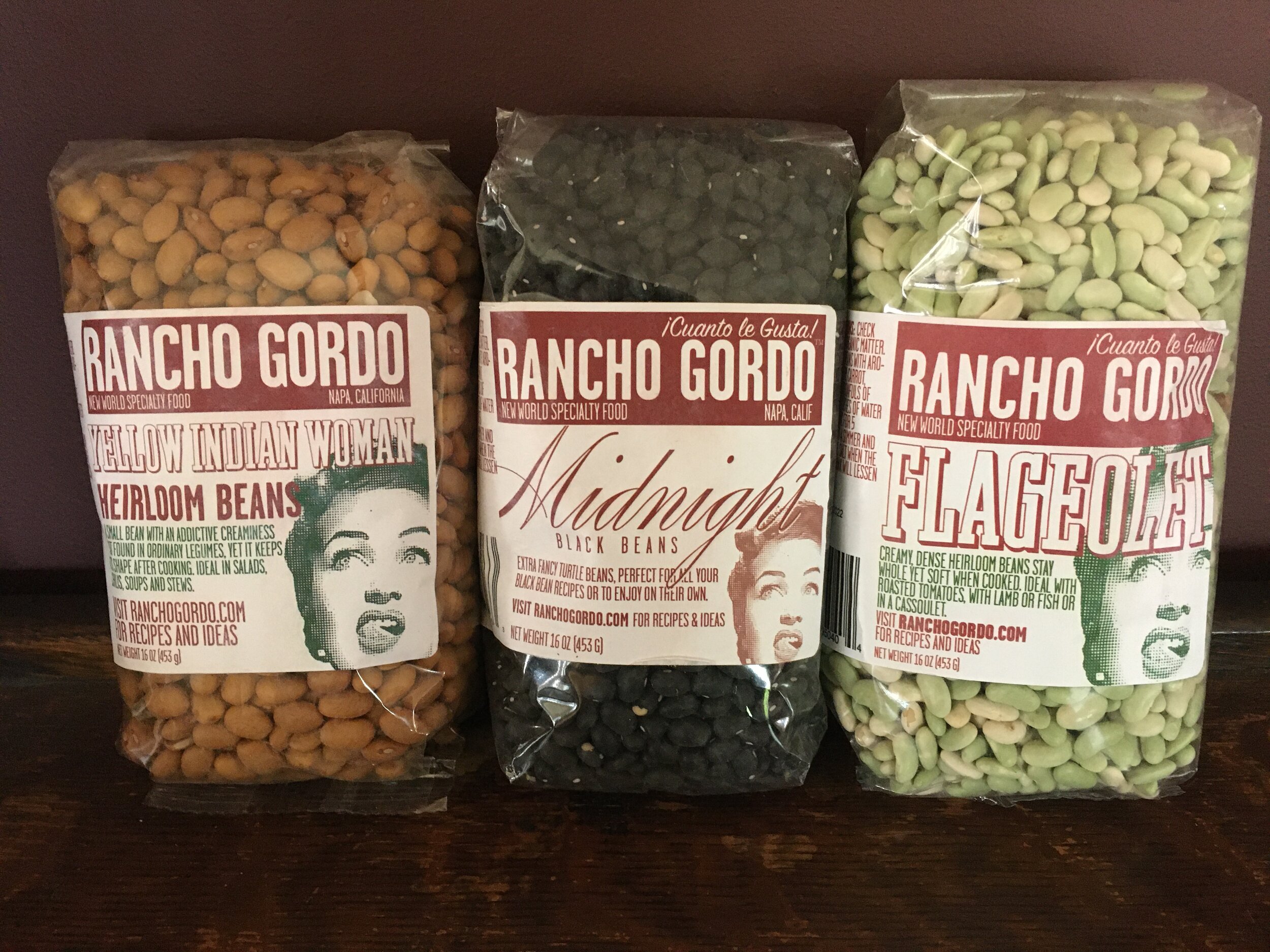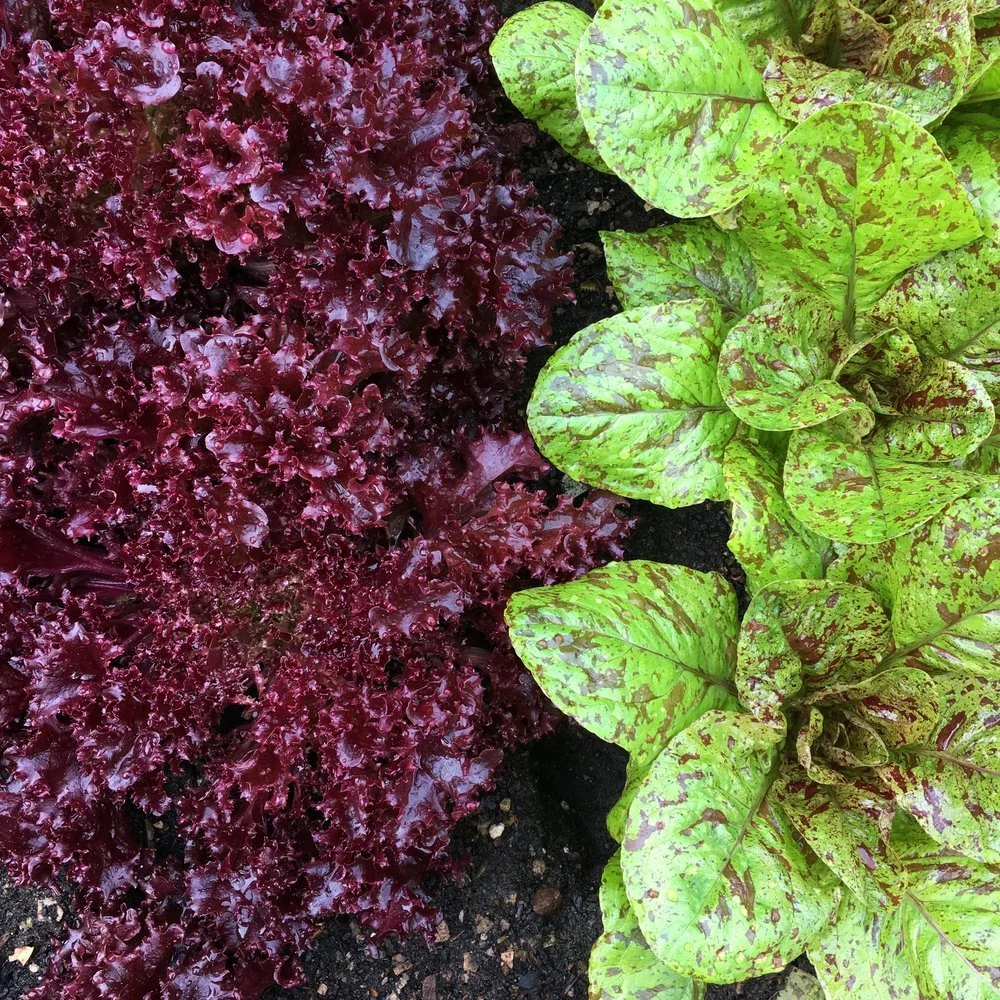I'm Growing Cranberry Beans
Happily, I planted cranberry beans this spring. In my coastal, fog belt garden I can grow beans better than tomatoes. In addition to the usual ‘Emerite’ pole beans, I’m growing cranberry beans and cannellini beans for drying. Territorial Seeds supplied my cranberry bean seeds.
The beans are plentiful and the plants are healthy. I’ll be waiting for them to dry and then harvest. Check back for updates.
Enjoy my original post on cranberry beans some years ago.

Yesterday’s post highlighted my introduction to cranberry beans and I promised to pass along seed sources. Reading the catalog descriptions gave me a bevy of reasons to grow them next year.
Here’s the Pinetree Garden Seeds description:
HEIRLOOM 1700’s Perhaps the most attractive of all dried beans, this variety is also an excellent shell bean. A beloved heirloom in New England since the eighteenth century, the cranberry-red beans are used in soups, for baking, and in a variety of other delicious ways. Semi-bush type. Grown in Maine. (approx. 50 seeds)
Bi-coastal moment. No wonder I liked them. Did my ancestors in Maine greet their arrival and grow them? Seed Savers Exchange logs their arrival in 1825:
(Phaseolus vulgaris) Brought to America from England around 1825. Triple purpose bean. Can be used as a snap bean at around 60 days, green shell bean at around 80 days, or as a dry bean if grown to full maturity. Produces heavy crops of stringless 7-9" pods until the first frost. Pole habit, dry, 60-90 days.
Snap bean, shell bean or dried bean, and they’re magenta too!
Territorial Seeds and Fedco Seeds offer the above beans and some seed purveyors describe them as Vermont Cranberry Beans.
With the magenta and red colors of the beans, I suspected they contained anthocyanins, pigments known for their many health benefits. Unfortunately, my cranberry beans became tan, apparently because the anthocyanins degrade with heat. Stability of anthocyanins is somewhat more complicated depending on the food, temperature and pH.
And why their late arrival here in early fall? Germination requires soil temperature above 60 degrees so likely they’re planted later and may take 80 days to grow to the shelling stage. So here they are in early October.
You can also use the Mother Earth News Seed Finder for other seed houses that sell cranberry beans. Many sell bean seed that is organic and non-GMO.
If you’ve grown cranberry beans, tell me about your experience in a Comment.
Update April 20, 2020:
So I never grew cranberry beans, mostly because my garden is small and the tradeoff would be trellised cucumbers or French fillet pole beans. But the good news is I found an amazing source of heirloom beans at Rancho Gordo. Due to overwhelming demand, orders placed today will ship in mid-May. I recently ordered four different heirloom beans and am very pleased with the quality.
This is not a product endorsement but part of an earlier post I did just as the stay-at-home orders were issued in California. Read Sourcing Food in These Times.

